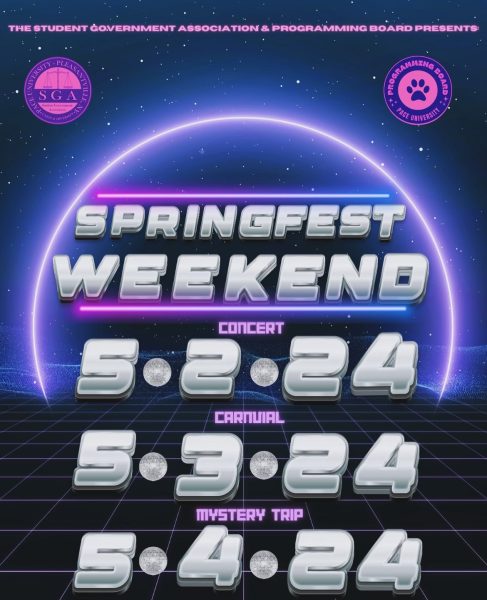Course Evaluations: Who Are They Really Helping?

Student evaluations are mandatory at Pace, but should they?
May 11, 2019
The final days of the semester brings many things with it. Sleepless nights, essays, exams, and of course, the dreaded course evaluations. Course evaluations are required by Pace to be completed by a certain date, or students’ grades will be withheld from them for a longer period of time than usual–May 24 for this spring semester.
Course evaluations provides feedback for the professors and the university about how students felt about a certain course or professor. Students fill out several multiple choice and short answer questions about how they feel the course went and how effective and helpful the professor was. Students also have the option to leave any comments they have at the end of the evaluation.
Making it a requirement may seem like an effective way to get students to complete course evaluations. However, it begs the question: How sincere and helpful are the course evaluations if students only complete them to get their grade on time? If there were no penalty, one would assume that there would be many students who do not fill out the evaluations. But, the ones who go out of their way to fill it out may give helpful and honest feedback.
Several professors assign their own type of course evaluations at the end of each semester to get more thorough feedback from students. Clinical Associate Professor Jennifer Magas, who teaches Public Relations and Communications courses at Pace, has a different method to gain student feedback that she believes mandatory course evaluations lack.
“I don’t think course evaluations provide enough information which is why I require my students submit a letter of transmittal to me at the end of the semester which provides suggestions about how to improve the course,” Magas said. “These letters have provided the best recommendations and helped me modify my courses so they best meet student needs and expectations. I think students give honest feedback for the most part, but the feedback is limited because of how busy they are at the end of the semester. In this case, a rushed evaluation may have few insights and little value to the professor reviewing them.”
Magas requires a “letter of transmittal” from each student, which provides extensive feedback about the course and her teaching, and how they feel they succeeded, or not, in the course. The second-year Pace professor said the letter, which is private between her and the student writing it, helps her become a more effective teacher.
“I look to student feedback each semester to help me make revisions to the course content and how I teach it,” Magas said. “I read every one because I care deeply about teaching students the knowledge and skills they need to succeed in their chosen profession.”
As for withholding grades from students, Magas does not believe a busy student should have to face a consequence for not submitting an evaluation.
“I have taught at many universities that do not withhold grades, so this is a new concept to me,” she said. “While I understand why the university has implemented this policy, I don’t like penalizing students if they don’t have the time or inclination to give me feedback about my course.”













